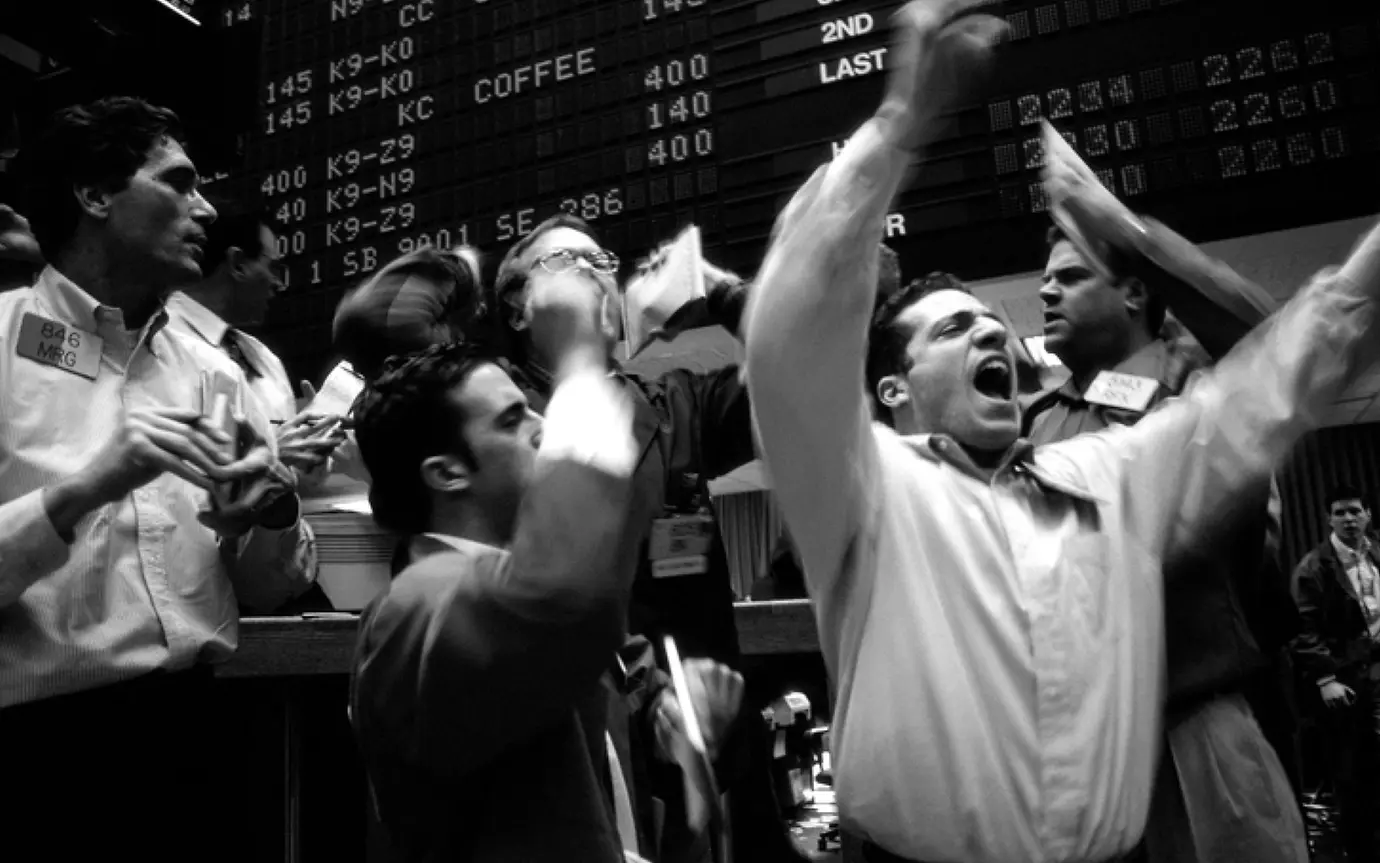- Home
-
Private banking
-
LGT career
They’re often attributed to investment legends such as Warren Buffett, they’re easy to remember and best of all, some expressions about stock markets actually hold water when put to the test.Many people are familiar with the proverb, “Red sky in the morning, sailors take warning ...”. And surprisingly, it often holds true. But is there as much truth in sayings that are supposed to predict developments in financial markets? We’ve fact-checked three of the most well-known expressions to find out.

Many people are familiar with the proverb, “Red sky in the morning, sailors take warning ...”. And surprisingly, it often holds true. But is there as much truth in sayings that are supposed to predict developments in financial markets? We’ve fact-checked three of the most well-known expressions to find out.
Every May, investors wonder whether they should follow the advice of the saying, “Sell in May and go away, but remember to come back in September.” In 2002, Ben Jacobsen, a finance professor at Tilburg University’s TIAS Business School, together with Sven Bouman of Saemor Capital, was the first to put this phenomenon under the “microscope”. He examined all of the available historical stock market data for 37 countries. And in 36 of those countries, the so-called Hallowe’en effect did indeed exist – to the greatest degree in Europe.
Twenty years have passed since then, but Jacobsen is still looking into the seasonal pattern of falling prices in May that pick up again in October. Together with Cherry Zhang, a finance professor at the Nottingham University campus in China, he has now analyzed all of the world’s 114 stock market indices for which data is available. In the United Kingdom, the data go back to 1693. For the years analyzed, returns from November to April were 4 percent higher on average than from May to August. At the same time, returns on equities in the summer were usually lower than short-term interest rates. But there was one exception to the rule: Mauritius!

People in academic circles shook their heads when Ben Jacobsen began his research. Why? Because the mantra in these circles was that financial markets are “efficient” and that stock market prices reflect all of the information available. In fact, no strategy should be able to systematically outperform the market. Jacobsen was therefore all the more amazed that the “Sell in May” rule appeared to attest to precisely the opposite. “We thought we might have made a mistake. But we never found it,” Jacobsen says. “Equally amazing to me is that every spring, countless media outlets announce that everything is set to change for the remainder of the year.” Jacobsen compares this reasoning to medicine. “Saying that smoking isn’t harmful because there are 80-year-olds who smoke is nonsense. If we apply that same logic, then the stock market can boom in May, despite the fact that the Hallowe’en effect exists,” he says.
But the cause of this anomaly in markets remains a mystery, even to Jacobsen. “I still can’t provide a definitive answer,” he says. For example, he has investigated – and rejected – the possibility of dividend payments in the spring having an impact. “I suspect that holiday-related behavior is responsible for the summer stock market dive,” he says. “During periods when people tend to go on holidays, the number of transactions in the market goes down. But getting to the actual holiday data requires a lot of effort.”
So do any other stock market sayings hold true upon closer examination? Jacobsen believes this could be the case for more somber sayings, such as “Buy to the sound of cannons, sell to the sound of trumpets.”

Overall, US stock market indices have indeed risen more than average in wartime. Not only that, but volatility on US stock markets is 33 percent lower during times of war than in peacetime, as Gustavo S. Cortes of theUniversity of Florida and his collaborators Angela Vossmeyer and Marc D. Weidenmier recently determined in a study called “Stock Volatility and the War Puzzle”. The study’s authors argue that unlike the general public, financial market participants are quickly reassured when the government shows itself to be generous. In times of war, the government usually increases its spending and grants guaranteed contracts to arms manufacturers and producers of other goods.
However, the US is a special case. It has been involved in many wars in the last 100 years – but none of them have taken place on its own soil. And indeed, an analysis that looks beyond the US paints a different picture. Jacobsen and Henk Berkman of Massey University analyzed 440 international crises from 1918 to 2002 and found that each international conflict resulted in a reduction in the returns on global stock markets of 0.13 percent per month. This effect is most pronounced when the conflict first breaks out; when it starts to near its end, markets recover. The biggest victims are the stock markets of the parties in conflict, while third countries are less impacted.
Empirical evidence is also inconclusive when it comes to the stock market adage, “Never catch a falling knife.” “If a stock is in free fall, it’s better to heed this expression and wait until the share price recovers,” explains Thorsten Hens, an economics professor at the University of Zurich. A stock can continue to crash, even if it has already lost 90 percent. Just think of the Wirecard and Swissair bankruptcies.
The situation is different, however, in the case of indices. “If, for example, the German DAX index collapses, it can make sense to take advantage of the weakness to enter the market,” says Hens. Why? Because in an index, stocks that remain weak for an extended period are given a lower weighting or possibly even removed. However, in the long term, the value of a broadly diversified equity portfolio will increase.
Just like with proverbs about the weather, there is a grain of truth in many sayings relating to the stock market. But while the weather is determined by the laws of nature, stock markets are at the whim of human nature. “I can predict the movement of heavenly bodies, but not the madness of people,” noted the physicist Isaac Newton 300 years ago.
LGT’s experts are always busy analyzing global economic and market trends. Our research publications on the international financial markets, sectors and companies will help you make informed investment decisions.